US businesses warn of looming effects of Trump's trade war on consumers
US businesses have reportedly been voicing concerns against President Donald Trump’s intensifying trade war with China, with major retailers such as Walmart complaining that tariffs are forcing them to hike prices on consumer goods for Americans.
The price hikes could complicate matters for Trump as the 2020 presidential campaign draws closer amid his repeated assertions that it would be China, rather than American consumers, that will pay the price of the trade war picks up.
This is while the National Retail Federation (NRF) estimates that the latest round of tariffs will raise the cost of the trade war to $750 per year for the average family of four, and slash as many as one million jobs from payrolls across the US, Washington-based news outlet The Hill reported Friday.
According to NRF projections, in case Trump follows through with the next round of tariffs, that cost to US consumers would increase to $2,300 a year and trim twice as many jobs.
“The last thing any retailer wants to do is raise prices, but if you’re talking about a 25 percent tariff, there’s only so much the supply chain can absorb,” said NRF’s senior vice president for government relations, David French, as quoted in the report.
For business leaders, it added, Trump’s Twitter statement that “there is no reason for the US Consumer to pay the Tariffs” fails to resonate.
French further emphasized, “Saying that China is paying these tariffs doesn’t hold water.”
Walmart’s Chief Financial Officer Brett Biggs further warned on Thursday: “There are some places where, as we get tariffs, we will take prices up,”
Macy’s CEO Jeff Gennette also sounded a similar alarm, saying another round of tariffs would almost certainly hit consumers in their pocketbooks.
“When you do the math, it’s hard to find a path through that wouldn’t impact customers,” Gennette told investors and analysts on Thursday. “It will affect a lot of apparel and accessories categories.”
The development came after Trump imposed tariffs on China in stages, starting in July when he targeted $50 billion of imports. He later added $200 billion of goods to the list.
Last week, however, he raised tariffs from 10 percent to 25 percent on the $200 billion of goods, and last Monday threatened to impose tariffs on the remaining $300 billion of goods imported into the US from China.
Meanwhile, US retailers insist that they have bent over backwards to avoid rising prices up until now, but that the latest round has left them with few options.
Ed Weinstein, vice president of tax and government affairs for the retail chain Jo-Ann Fabric, said his company navigated the first rounds of tariffs by looking for alternative source materials, negotiating with suppliers and cutting margins. However, he added that those options are largely exhausted in the face of 25 percent tariffs.
“At 25 percent, we will need to pass on the pricing to our consumers. We’re not happy about that, but that would just be the reality, and we anticipate that the increased pricing could lead to reduced profit, which could lead to store closings and employee layoffs,” Weinstein underlined.
While Trump expects the higher tariffs will force China into striking a deal, an agreement is not anticipated anytime soon. In announcing the new tariffs, Trump accused China of backtracking on previously agreed-upon positions in the talks.
Beijing has since hardened its position with Chinese officials speaking out against the US, tariffs and the trade negotiations through the local media.
Chinese Commerce Ministry spokesman Gao Feng has referred to the tariffs as "bullying behavior by the United States,” in the state-run Xinhua news service.
“It is regrettable that the US side unilaterally escalated trade disputes, which resulted in severe negotiating setbacks," he further emphasized.
Toyota slams Trump’s assertions against Japanese
Meanwhile Toyota Motor Corp. issued a rare rebuke of the US president on Friday after he declared that some auto sector imports were a threat to the American national security.
The sharply-worded statement from Japan’s largest automaker targeted Trump’s claim that the US needs to defend against foreign-built cars.
"Today’s proclamation sends a message to Toyota that our investments are not welcomed, and the contributions from each of our employees across America are not valued," the company declared.
The Japanese automaker further noted that it directly and indirectly employs more than 475,000 people across the US and has invested more than $60 billion, including 10 manufacturing plants.
"Most every American has a Toyota story and we are very proud of the fact that over 36 million Toyota and Lexus vehicles are still on US roads today. Our operations and employees contribute significantly to the American way of life, the US economy and are not a national security threat," the company added in the statement.
The development came after Trump issued a proclamation on Friday directing the US trade representative to negotiate agreements to "address the national security threat, which is causing harm to the American automobile industry."
"United States defense and military superiority depend on the competitiveness of our automobile industry and the research and development that industry generates," the White House declared in a statement.
Trump, however, held off on imposing automobile tariffs for 180 days amid ongoing talks with Japan and the European Union.
This is while the Alliance of Automobile Manufacturers, a trade group representing 12 of the largest domestic and foreign car makers, warned this week that imposing tariffs on auto imports could risk the loss of as many as 700,000 American jobs.
“The tariffs would also roll back the benefits from the Trump tax cut and have widespread impact across manufacturers, suppliers, and dealers in all 50 states,” the group further stressed in a statement.
US-allied fuel tanker attacked by Iran still burning in Strait of Hormuz: IRGC
Attacks on hospitals, schools ‘strike at life itself’: Pezeshkian
Iran’s attacks on US bases ‘legitimate’ response to source of aggression: Araghchi
IRGC targets US intelligence centers, military depots in 11th wave of attacks
US-Israeli attacks damage 5 hospitals, medical centers in Iran: MP
Unlike US, Iran prepared for a long war: Security chief
Missile sirens will never stop in Israeli-occupied territories, Iran warns
Leader’s martyrdom will drive Iran to greater dignity and victory: Senior cleric


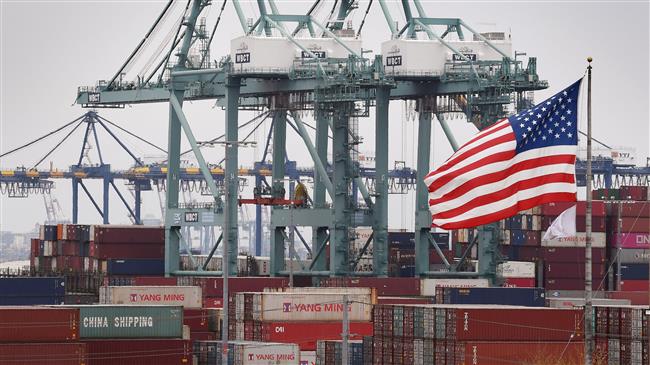




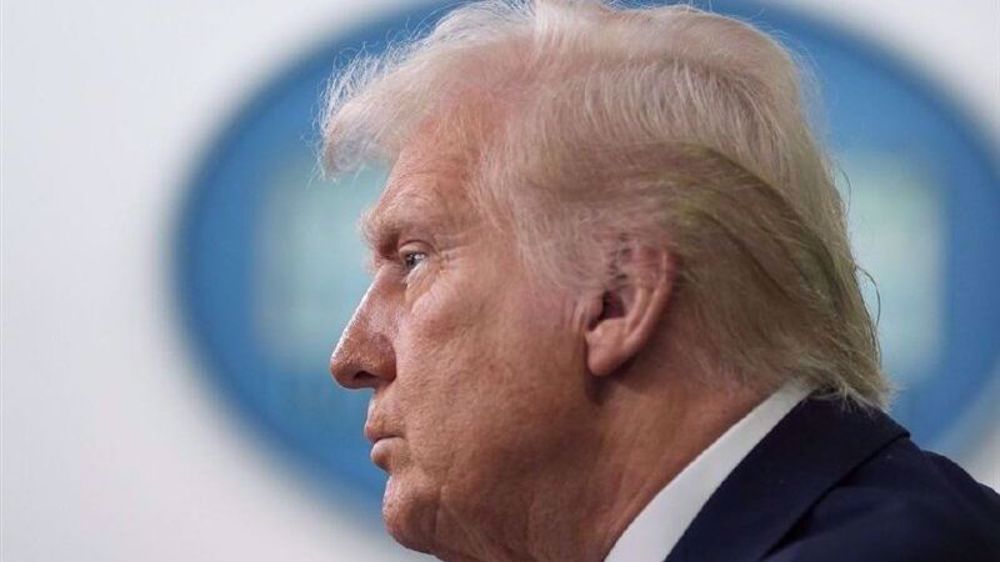
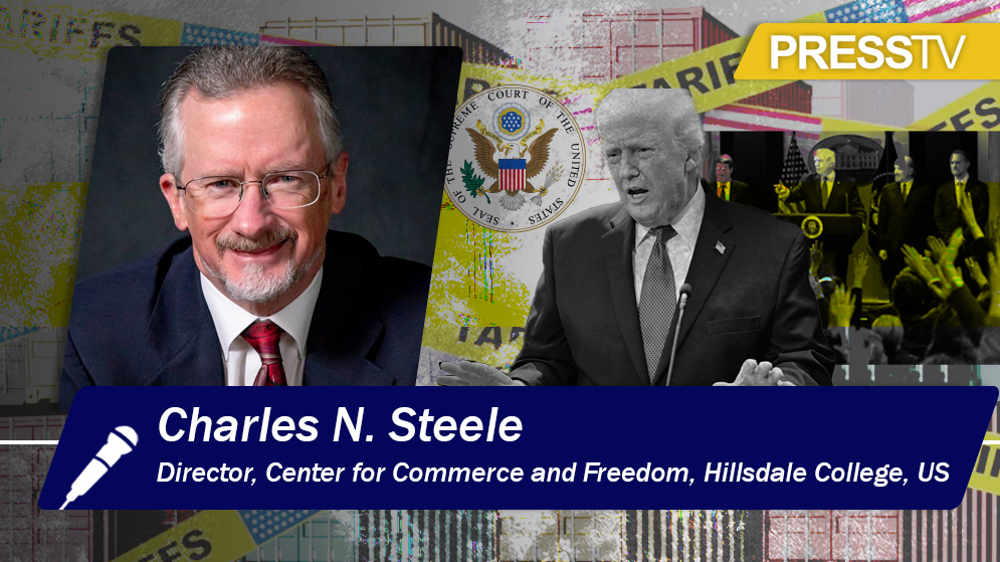
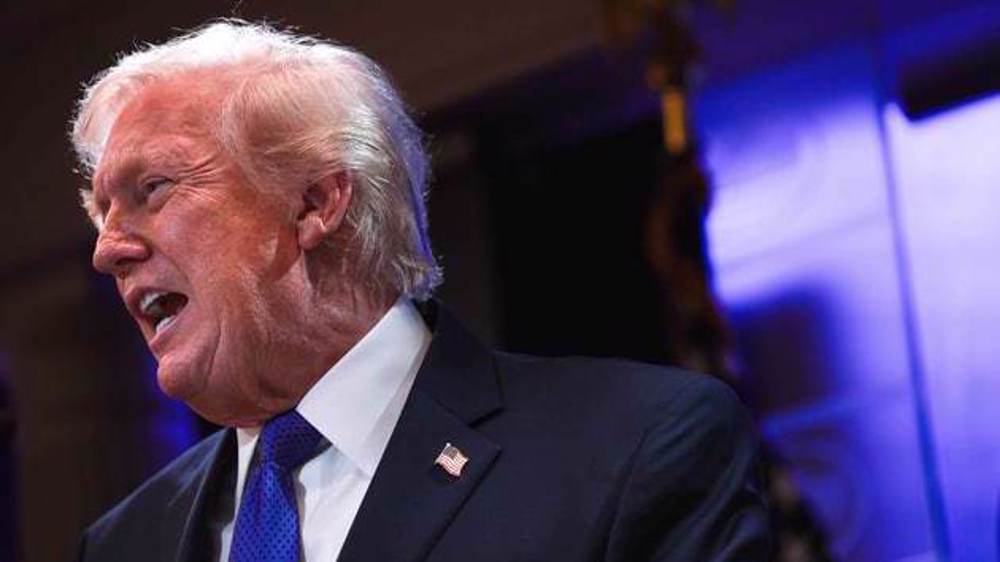



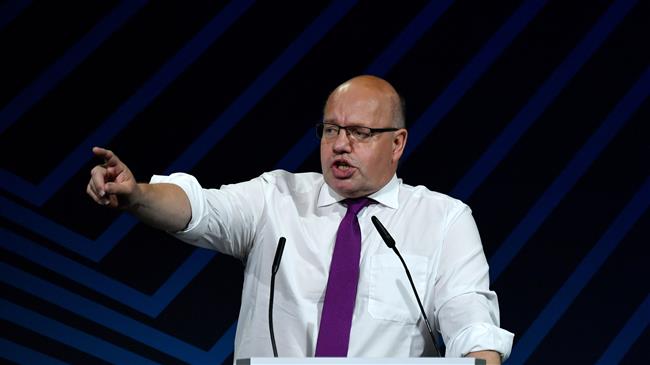

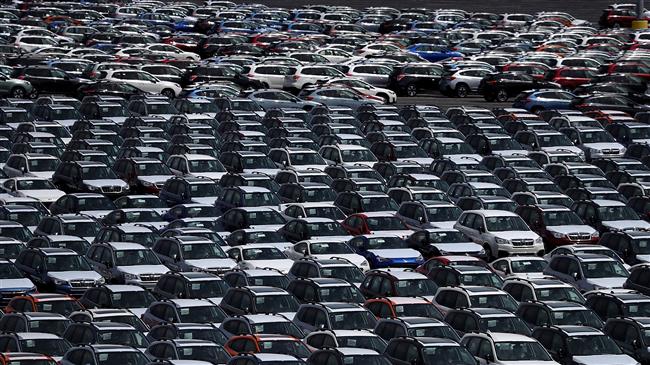
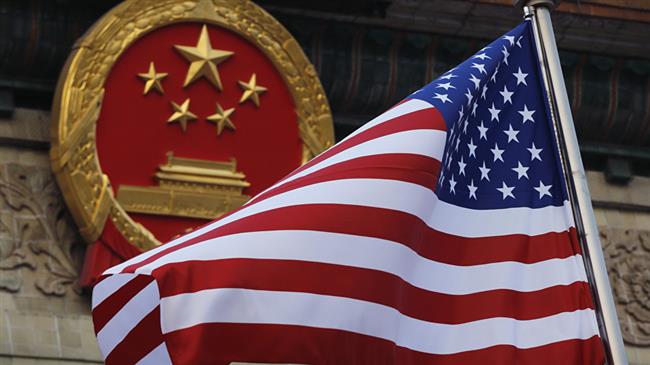
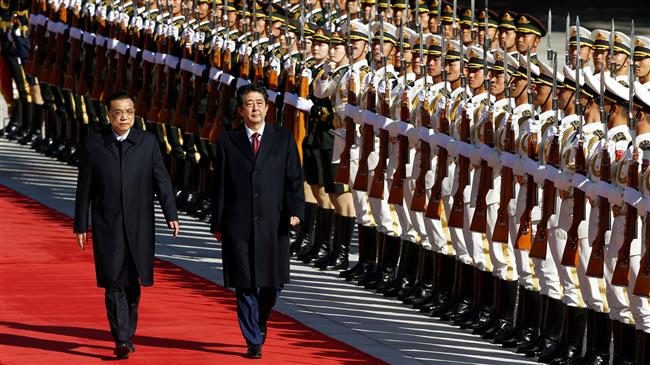

 This makes it easy to access the Press TV website
This makes it easy to access the Press TV website